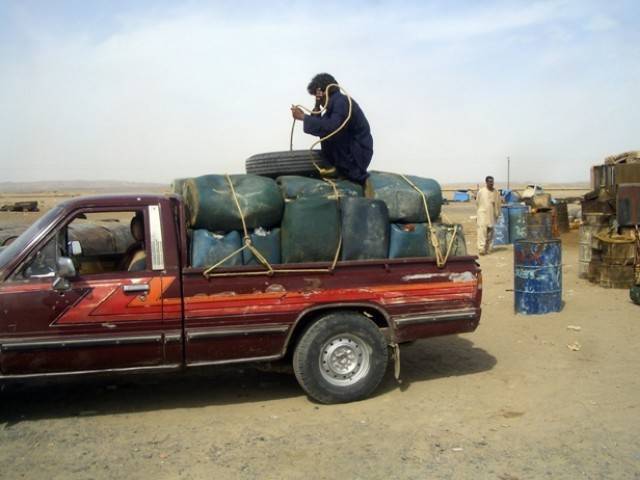
Pakistan’s southwestern province Balochistan is experiencing a fuel crisis as the escalating Israel-Iran conflict disrupts the supply of Iranian oil across the border, according to a report by Dawn.
The closure of petrol pumps in the region has worsened the situation, especially in border districts like Turbat, Gwadar, Panjgur, Chagai, Washuk, and Mashkail, which rely heavily on smuggled Iranian oil. These areas are also facing food shortages, as many essential supplies are imported from Iran.
The suspension of Iranian oil supply through Makran, Rakhshan, and Chagai has led to the closure of 60 to 70% of petrol pumps in Balochistan. The district administration had previously shut down pumps selling smuggled Iranian petrol and diesel, further exacerbating the situation in Quetta and surrounding districts. As a result, prices for smuggled Iranian fuel on the black market have risen sharply, with petrol now being sold for Rs 280 to 300 per litre, well above the government-set price of Rs 254 per litre.
In addition, fuel supply from Karachi has been disrupted due to road blockades between Quetta and the port city, further compounding the fuel shortage.
However, the Balochistan government has denied claims of a fuel shortage, stating that most petrol stations in the provincial capital remain operational.
Spokesperson Shahid Rind refuted the idea of a widespread shortage, pointing out that the closure of stations selling Iranian oil was necessary due to safety concerns, with 28 fuel-related accidents reported across Quetta in the past month.
He emphasized that the province was taking strict action against those involved in hoarding or selling illegal fuel, warning of legal consequences for any petrol stations refusing service or engaging in unlawful practices.
